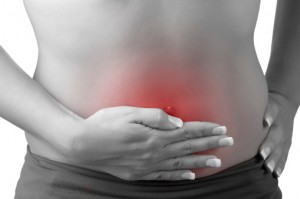Why use a weight management program?
Eating and living healthfully, of course, involves more than just counting calories, carbohydrates, proteins, and fats. An active lifestyle is an essential component to a good diet. But just what is a “good” diet? A diet that promotes good health is, first of all, a diet you can live with. It is relatively low in fats (particularly saturated fats), low in cholesterol, moderate to low in simple sugars, high in complex carbohydrates and fiber, and adequate in water, vitamins, and minerals. The caloric content of a good diet is enough to allow you to maintain a regular exercise program in addition to providing for daily activities. As much as possible, naturally occurring foods are chosen over processed foods. A healthy diet includes a variety of foods, and few foods are banned or off limits.
The hallmark of a good diet is moderation. This means keeping food portions moderate, forgoing second helpings, minimizing inappropriate snacking, and not overdoing consumption of alcohol, sodium, salt, and caffeine. Moderation means now and then allowing yourself a little bit of the less healthful things you like to eat and most of the time making healthy choices. When you are about to make a food choice, ask yourself “Is this good for me?” If it is a healthy choice, allow yourself to enjoy it. If it is less than healthy, eat a smaller portion. Next time, make the healthier choice. For those wishing to pursue a “non-diet” option, learning to eat in moderation is a good choice. Learning to eat in moderation is important for lifelong success with weight control.
Diets that severely restrict calories to less than 800 to 1000 calories per day affect metabolism. When you go on a very low calorie diet, your body doesn’t know you want to be a size 8. It reacts as if you are about to starve to death; so it does what it can to preserve life. The body responds to severe caloric restriction by decreasing the rate at which it burns calories. This decrease in metabolism can be as high as 30 percent, and the effect can begin within twenty-four to forty-eight hours of starting this kind of diet. Even if you lose weight on a very low calorie diet, when you go off it you can regain weight rapidly if you increase your caloric intake too quickly. Although metabolism is believed to rebound, it takes time for this to happen, making you more vulnerable to regaining the weight you have lost.
The best way to lose weight is to combine moderate caloric restriction with regular exercise. But just what is “moderate” caloric restriction? A good guideline for most people is to reduce caloric intake by about 300 calories a day and increase energy expenditure by 200 to 300 calories per day. The actual daily caloric intake level that will produce a weight loss for you depends on your metabolism, your level of exercise, and how much weight you need to lose.
-
How To Lose Weight Fast - 6 Simple Techniques Rarely Known But Work Fantastic
Are you looking for ways to lose weight? Due to life style and feedin
-
The Zone of Weight Loss Success
You always hear the latest and greatest way to lose weight and keep
-
Set Your Diet and Weight Loss Goals
There are a lot of people wanting healthy weight loss, but they d
-
Weight Loss Simplified: Follow These Basic Tips
At some point in your life losing weight is becoming a priority.
-
Five Steps to Vibrant Health and a Better Quality of Life
They say that knowledge is power, so here is some knowledge about f
-
Cinnamon And Weight Loss: Slimming With Apple Pie
There is a connection between cinnamon and weight loss, which is good
- DON'T MISS
- Hypothyroidism, Hashimoto’s thyroiditis link to rheumatoid arthritis and increased depression symptoms
- A Couple Of Fast Ways To Lose Weight Within A Week Or Two
- Consumer Health Awareness Can Help You Teach Your Kids How to Eat and Stay Healthy
- About Weight Loss And Hcg Diet Plan
- 3 Simple Ways To Get Rid Of Cellulite
- Does Drinking Water Help To Lose Weight? - Some Answers
- I Lost Weight: Our Most Inspirational Weight Loss Success Stories Of 2012
- Mild cognitive impairment (MCI): Symptoms and remedies
- Breakfast Guidelines For Fat Loss
- Organic Hunger Suppressant – 2 Simple Solutions




